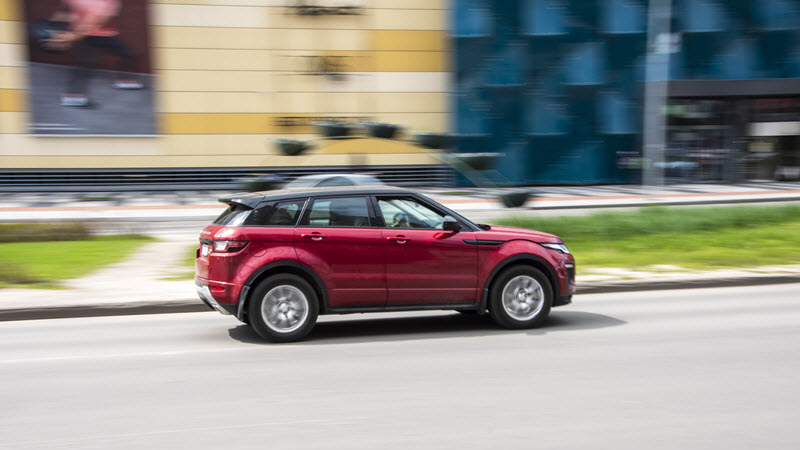-
Best Garage in College Station to Fix Land Rover Ride Optimization System Issues

When it comes to rugged luxury and the spirit of adventure, Land Rover stands out as a brand that combines style and substance. Land Rover vehicles are renowned for their off-road capabilities, luxurious interiors, and innovative technologies, including the Ride Optimization System. However, like any complex system, the Land Rover Ride Optimization System can encounter issues that need attention.
Let’s investigate the common problems that Land Rover owners might face with their Ride Optimization System and how to address them. Whether you’re navigating challenging terrain or cruising down city streets, ensuring your Land Rover’s ride optimization system is in top shape is essential.
Understanding the Land Rover Ride Optimization System
Before diving into the issues and solutions, let’s get a grasp of what the Land Rover Ride Optimization System is. This system is a set of technologies designed to enhance your driving experience, ensuring you have optimal control, comfort, and performance, whether you’re traversing rocky trails or commuting to work.
The Ride Optimization System incorporates various components, including adaptive suspension, terrain response, electronic stability control, and more. These work in harmony to provide a smooth, safe, and adaptable ride, no matter the conditions. However, like any sophisticated technology, it can face problems. Let’s look at some of the common issues and how to address them.
Suspension System Troubles
One of the key elements of the Ride Optimization System is the adaptive suspension. This system adjusts the damping characteristics of your Land Rover’s shock absorbers in real-time to provide a comfortable ride on various terrains. However, you may encounter issues such as:
- Harsh Ride: If your Land Rover feels rough on even paved roads, it could be a sign of suspension issues. This might be due to worn-out shocks or other components in the suspension system.
- Sagging or Uneven Ride Height: Your Land Rover should maintain a consistent ride height, even when loaded with passengers or cargo. If you notice it’s sitting unevenly or sagging, there may be problems with the air suspension components.
To resolve these suspension problems, it’s essential to have your Land Rover inspected by a skilled technician. They will diagnose the issue, whether it’s related to the shock absorbers, air springs, or other suspension components, and recommend appropriate repairs or replacements.
Terrain Response System Malfunctions
The Terrain Response System is a groundbreaking feature in Land Rovers, allowing you to select various driving modes to suit different terrains. It optimizes the engine, transmission, suspension, and other systems for maximum performance and safety. However, you might face issues like:
- Inability to Switch Modes: If you’re unable to switch between modes, the system might be malfunctioning.
- Unexpected Mode Changes: Sometimes, the Terrain Response System might switch modes unexpectedly, which can be disorienting and dangerous.
Troubleshooting such issues often involves diagnostic equipment and a trained technician’s expertise. They can identify the source of the problem, whether it’s a sensor issue or an electrical fault, and rectify it accordingly.
Electronic Stability Control (ESC) Warnings
ESC is a crucial safety feature in your Land Rover that helps prevent skidding or loss of control in slippery or challenging conditions. When there’s a problem with the ESC system, you may see warning lights on your dashboard, indicating trouble.
In the event of ESC warnings, it’s essential to have your Land Rover checked by a professional. They can perform a detailed diagnostic test to pinpoint the issue, whether it’s a sensor fault, a brake system problem, or an issue with the ESC module. Timely attention to these warnings can ensure your vehicle’s safety systems are in top shape.
Air Suspension Faults
Many Land Rovers feature air suspension systems that provide a smooth and adjustable ride. When the air suspension system malfunctions, you might encounter issues like:
- Suspension Warning Lights: If you see warning lights related to the suspension system on your dashboard, it’s time to take action.
- Uneven Ride Height: Just like with the adaptive suspension, an uneven ride height could indicate air suspension problems.
Addressing air suspension issues requires a skilled technician with experience in Land Rover systems. They can identify the cause of the fault, whether it’s a leak, faulty compressor, or sensor problems, and carry out the necessary repairs to restore your Land Rover’s ride quality.
Autowerks: Your Land Rover Experts
The Land Rover Ride Optimization System is a
 remarkable technological marvel, but like any complex system, it can encounter issues. Timely diagnosis and professional repairs are essential to maintain the exceptional driving experience Land Rover owners expect.
remarkable technological marvel, but like any complex system, it can encounter issues. Timely diagnosis and professional repairs are essential to maintain the exceptional driving experience Land Rover owners expect.For the best Land Rover service and maintenance in Brenham, Bryan, Caldwell, Madisonville, Navasota, and College Station, TX, look no further than Autowerks. Our expertise in Land Rover vehicles and dedication to quality service make us the top choice for addressing any issues with your Land Rover’s Ride Optimization System. Contact us today to schedule an appointment at 979-690-3032. Don’t let Ride Optimization System problems disrupt your Land Rover’s adventurous spirit; let Autowerks get you back on the road with confidence!
* Red Land Rover Car image credit goes to: YuriyVlasenko.






